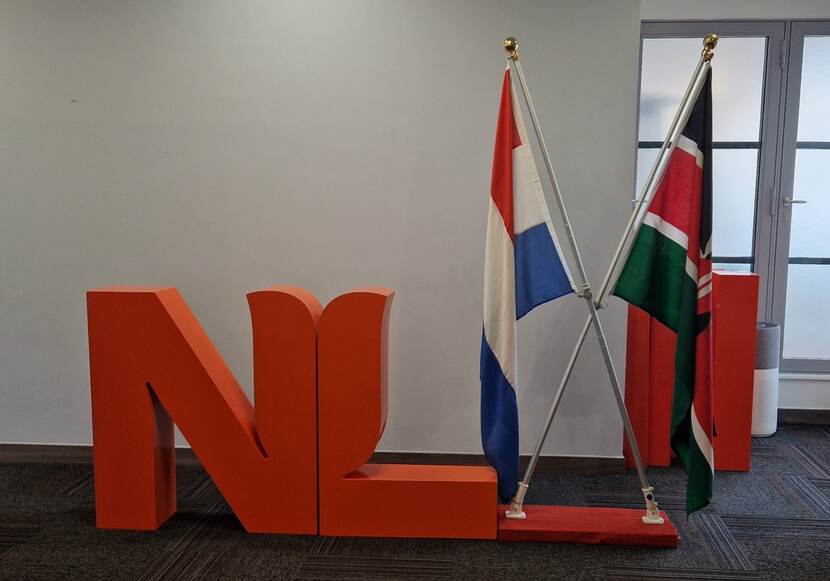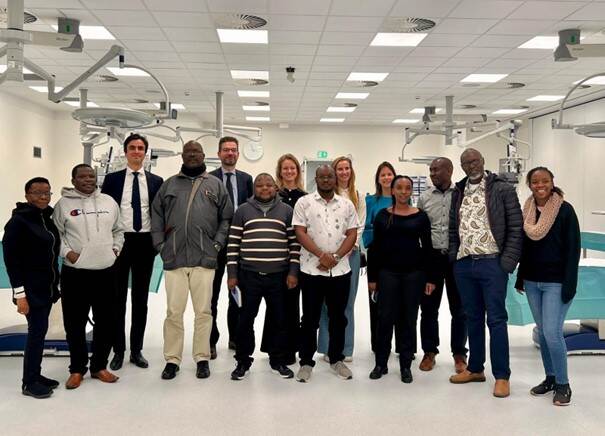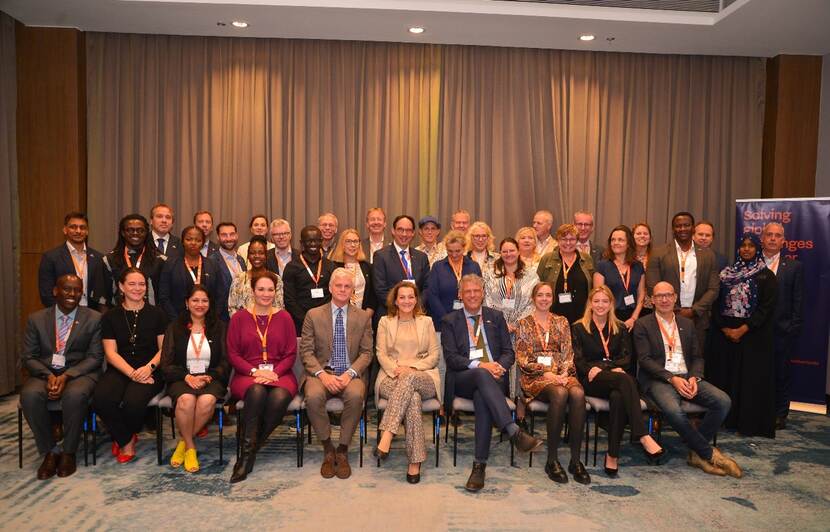Task Force Health Care and the Global Health Hub
How can Dutch health expertise make an impact internationally? And how can partnerships between public, private, and civil society actors lead to more equitable health systems? That’s exactly what Task Force Health Care (TFHC) is working on.
Founded over 25 years ago, TFHC has grown into a platform for Dutch health-sector stakeholders looking to work internationally. We spoke with Helena Pluimes, Project Manager at TFHC, about their work, their mission, and how they see the collaboration with the Global Health Hub.
What is TFHC?
“We’re a non-profit platform organization,” Pluimes explains, “but we operate in a very action-oriented way. We organize missions, facilitate matchmaking, host strategy sessions, and help translate a company’s or organization’s international ambitions into actual partnerships and projects.” TFHC works across sectors with startups, SMEs, multinationals, research institutions, NGOs, and public bodies like the Ministry of Health and RVO. A key strength of TFHC is that it understands both the entrepreneurial mindset and the policy landscape. Pluimes emphasizes that many SMEs and startups want to contribute to global health, but don’t always know how to navigate the complex systems and partnerships involved. “They have great innovations,” she says, “but lack access to the networks or the understanding of local context. That’s where we step in: we help them scale, adapt, and connect to the right stakeholders.” At the same time, TFHC supports governments and institutional donors looking to collaborate with Dutch health actors. “We often help ministries or embassies understand who in the Netherlands can contribute to their priorities,” Pluimes adds. “That might be a company offering digital health solutions, or a research institute with relevant expertise. TFHCs focus is on building partnerships and promoting Dutch health solutions in global markets, with the ultimate aim of improving health systems and access to care worldwide.”

Combi-Track Kenya
One of TFHC’s key initiatives is Combi-Track Kenya: a four-year public-private partnership set up with the Dutch Embassy in Nairobi and RVO. The program combines trade and development, with the shared goal of contributing to universal health coverage in Kenya. “We’re now in the second year of implementation,” Pluimes says. “This year we’re focusing on how Dutch companies can scale up sustainably in emerging health markets like Kenya. How they secure funding, find the right partners, and build long-term collaborations.” In 2024 a report was launched where different (inter)national financing instruments for NL organisations entering the Kenyan market are defined. Later this year, a Dutch delegation of about 15 organizations will travel to Kenya for on-the-ground meetings with local stakeholders. In return, a Kenyan delegation will visit the Netherlands in September to explore the Dutch health ecosystem. They will elaborate on all sorts of topics, from digital innovation to primary care delivery.
Connecting with the Global Health Hub
TFHC recently joined the Global Health Hub. Pluimes sees a lot of potential in this growing community: “We mainly represent the private sector, especially SMEs, and we see it as our role to bring their voices to the table. At the same time, the Global Health Hub helps us connect to key public partners and align on broader global health goals.” Many of the GHH participantsare already involved in Combi-Track. Now, the aim is to strengthen connections even further, especially with other Global Health Hub partners working in similar countries or on overlapping themes.
Why collaboration is key
TFHC believes in the power of cross-sector collaboration. “Without strong public leadership, you don’t get long-term strategies. But without innovation from the private sector, health systems can’t grow or adapt,” says Pluimes. “You need both sides.” That’s where TFHC positions itself, as a connector and facilitator. From organizing joint trade missions to setting up knowledge sessions with embassies and entrepreneurs, TFHC makes sure the right people are talking to each other, and working together. “The Global Health Hub plays a similar role,” Pluimes adds. “It brings people together to talk about challenges and opportunities. It gives partners a platform to speak up and align strategies.”

What’s happening in the field?
In Kenya, a major focus is maternal and child health, especially in rural areas where access to basic care is limited. “Sometimes, a clinic can’t even provide care at night due to a lack of electricity. These are solvable problems, and Dutch innovations can relatively easily help,” says Pluimes. Other key areas include non-communicable diseases (like diabetes and hypertension), infectious diseases, and digital health solutions. TFHC supports Dutch organizations in understanding local needs, building trust with partners, and tailoring their solutions to the context.
Advice to other Global Health Hub partners
Pluimes’ message to other organizations in the Hub: work together. “If you want to make a real impact in a country’s health system, don’t go alone. Join already existing consortiums by presenting a unified vision. That’s how you gain trust and credibility with governments and funders,” she explains. She sees platforms like TFHC and the Global Health Hub as key to this approach: “Together, we can show what the Netherlands has to offer. Not as separate organizations, but as a reliable network. That’s what makes a difference in global health.”
If you are interested to learn more about the Combi Track Kenya: visit the website or get in touch!
